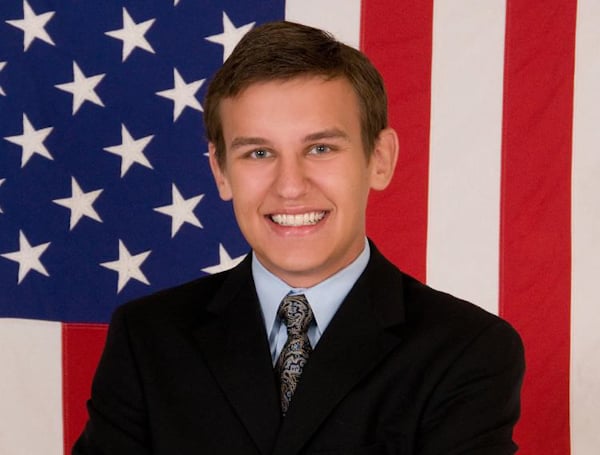
Roman Larson ‘15, a Wisconsin native who founded an education nonprofit while in high school, ran and lost this week in a primary race for a spot on the Wisconsin Mequon-Thiensville Board of Education. Larson said he plans to follow his passion for education reform despite the setback.
It was finally Roman Larson’s turn to speak at the forum. With his fellow candidates looking on, Larson ’15, dressed in a dark suit and tie, leaned into the microphone and began his pitch.
It was finally Roman Larson’s turn to speak at the forum. With his fellow candidates looking on, Larson ’15, dressed in a dark suit and tie, leaned into the microphone and began his pitch.
“I honestly never understood this concept that we are not going to reward somebody for doing a good job, but we are going to reward them for being in the school system for 10 years, 20 years,” he said. “You know, in every other profession in America, you get rewarded for producing results. In education, that’s not the case.”
Larson, a freshman who intends to major in political science and pursue a coterminal degree in policy, organization and leadership studies at Stanford’s School of Education, was one of seven candidates who ran this week for three open positions on the Mequon-Thiensville Board of Education in Wisconsin.
Although Larson lost the primary, he remained upbeat, releasing a video statement stating, “Even though I am disappointed by the results of the election, I am encouraged by the enthusiasm and excitement shown by so many individuals in the community.
“While my campaign activities will come to a close this evening, I cannot overstate what an amazing learning opportunity this has been,” he added.
In the last few months, Larson had been traveling back and forth between Wisconsin and Stanford, alternating between campaigning, studying and catching red-eye flights in both directions. As part of the campaign process, he ran newspaper ads, advertised through social media, distributed flyers and campaigned door-to-door.
“I’ve learned so much about campaign finance laws, getting a campaign going, how to present yourself as a candidate, talking to individuals about your ideas,” he said. “All of that is just a great learning experience in itself…beyond the actual winning or losing of the election.”
Larson traces his interest in education policy back to his ninth-grade Eagle Scout project, in which he started an after-school tutoring program for middle-school students in his area.
Working with his former middle school principal, he developed a tutoring model in which high-school students mentored middle school students in one-hour sessions.
Over the course of his high school career, Larson grew this program into Dimensions Learning Inc. , a nonprofit corporation that has logged over 10,000 hours of volunteer service and now serves several Wisconsin school districts.
Dimensions Learning is composed of three main programs: 9th Dimension, the original tutoring program; 10th Dimension, a private one-on-one tutoring program; and 11th Dimension, a summer school program. In addition to using high-school volunteers, Dimensions Learning employs teachers and tutors to operate 10th Dimension and 11th Dimension.
Larson estimated that at least 500 students have participated in Dimensions Learning programs.
After Larson moved to Stanford, a new executive director was brought in to run the organization’s daily operations, although Larson still serves on the board of directors and advises the new executive.
Larson began to develop an interest in running for the school board due to controversies at his high school during his senior year, including an attempt to cut the foreign language program. He was further motivated by the turmoil caused by Wisconsin’s Act 10, which limited the collective bargaining rights of unions–including teachers’ unions.
In his vision of education reform, Larson emphasizes promoting fiscal responsibility in the school district and focusing on maximizing the quality of teaching for the approximately 3,500 students in Mequon-Thiensville schools.
He said a more comprehensive teacher-evaluation system to more accurately assess teacher performance is needed, although he does not advocate basing teacher pay on merit alone.
Mequon-Thiensville School District Superintendent Demond Means, who advised Larson and worked with him on 9th Dimension, praised his work.
“He has demonstrated himself to be a very wise young man when it comes to understanding the components of running supplemental support programs to public schools,” he said. “I think Roman is a very talented young man with a very bright future in politics and public service.”
Reflecting on his work thus far, Larson said, “I’m on the track of where I think I want to go in life. I’ve considered doing other things or if I have other passions, and I’ve realized I don’t, so why not go after what I love right now?”
